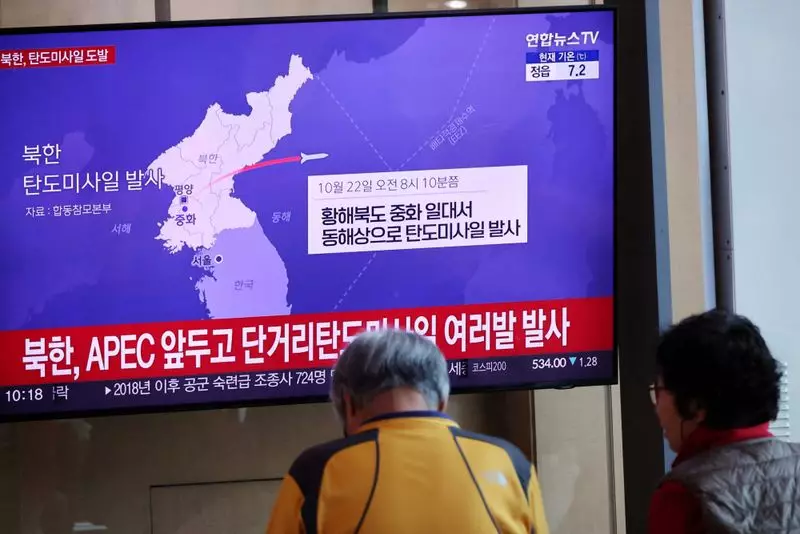
In a significant escalation of military tensions, North Korea conducted multiple ballistic missile tests on Monday, just one week before a highly anticipated meeting between former US President Donald Trump and South Korean business leaders in Seoul.
The South Korean Joint Chiefs of Staff confirmed detecting the launch of several short-range ballistic missiles from North Korea's Sunan area toward the East Sea. The missiles traveled approximately 300 kilometers before landing in international waters.
Timing Raises Eyebrows
The provocative timing of these tests has drawn international attention, coming just days before Donald Trump's scheduled meeting with former South Korean President Lee Myung-bak and other prominent business figures. This meeting marks Trump's first visit to South Korea since leaving the White House.
Military officials from both South Korea and the United States are closely analyzing the missile specifications and trajectory patterns. The launches represent Pyongyang's continued defiance of United Nations Security Council resolutions that explicitly prohibit North Korea from testing ballistic missile technology.
Regional Security Implications
These tests occur amid heightened geopolitical tensions in the region. Japan's Coast Guard immediately issued navigation warnings following the launches, while South Korea's National Security Council convened an emergency meeting to assess the situation and coordinate response measures.
"This calculated provocation appears designed to test international resolve and potentially influence upcoming diplomatic engagements," noted Dr. Park Won-gon, a professor of North Korean studies at Ewha Womans University in Seoul.
The missile launches follow North Korea's recent warning against what it describes as "hostile military maneuvers" by the United States and South Korea. Pyongyang has consistently justified its weapons development as necessary for self-defense against perceived American aggression.
International Response
United Nations officials have expressed concern over the escalating situation, while US State Department representatives have called for renewed diplomatic efforts to address North Korea's nuclear and missile programs. The international community continues to monitor developments closely as diplomatic efforts face new challenges.





